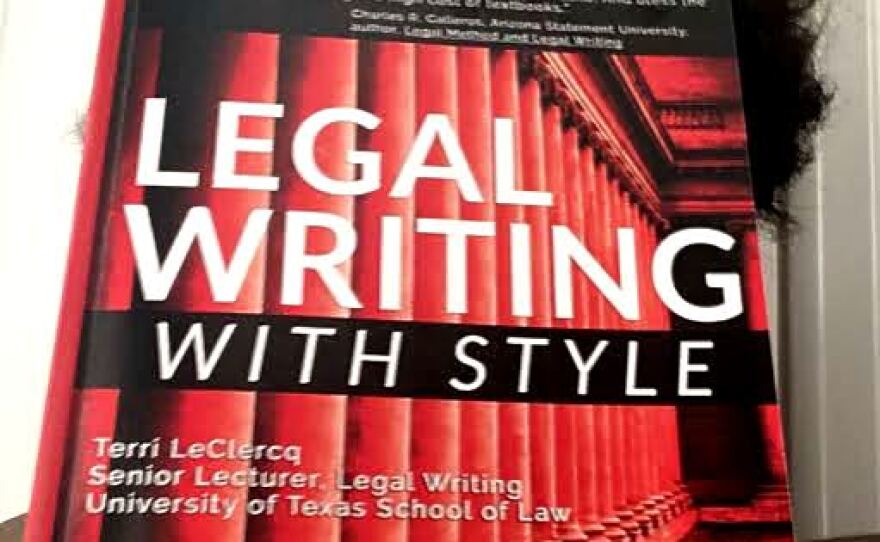The Argus Leader sued the City of Sioux Falls for violating South Dakota's Open Records Act. The city entered into a contract with Denny Sanford Premier Center contractors to keep contents of a settlement confidential.
The city maintains that one subpart of the Open Records Act allowed that contract to happen legally. A lower court agreed, and the Argus Leader appealed to the South Dakota Supreme Court.
During oral arguments in January, much was made of the placement of one comma and a shaky concept in legal writing called the Doctrine of the Last Antecedent.
Spoiler alert: the Argus Leader won.
Justices were not unanimous in their ruling, but none of them defended the statute as an example of good writing.
SDPB's Victoria Wicks explores language and the law in this feature for In the Moment.
Find coverage from January 2017 linked to the story at the bottom of this post.
To read Terri Leclercq's Doctrine of the Last Antecedent: The Mystifying Morass of Ambiguous Modifiers, click here:
http://www.journallegalwritinginstitute.org/archives/1996/lec.pdf
To find audio of oral arguments and parties' briefs, go to this site, find January 2017, and find Argus Leader v. Hogstad near the bottom of the second page:
http://ujs.sd.gov/Supreme_Court/calendar.aspx
To read the S.D. Supreme Court opinion in Argus Leader v. Hogstad, click here:
http://ujs.sd.gov/uploads/sc/opinions/27903.pdf
EXTRA CREDIT READING: For oral arguments, transcript, and opinion in a U.S. Supreme Court case having to do with last antecedents, Lockhart v. United States, click here:








